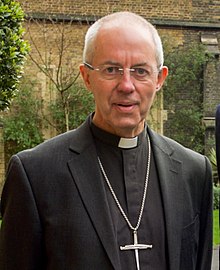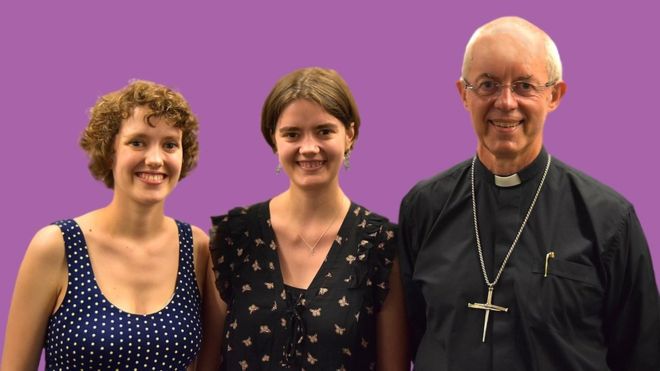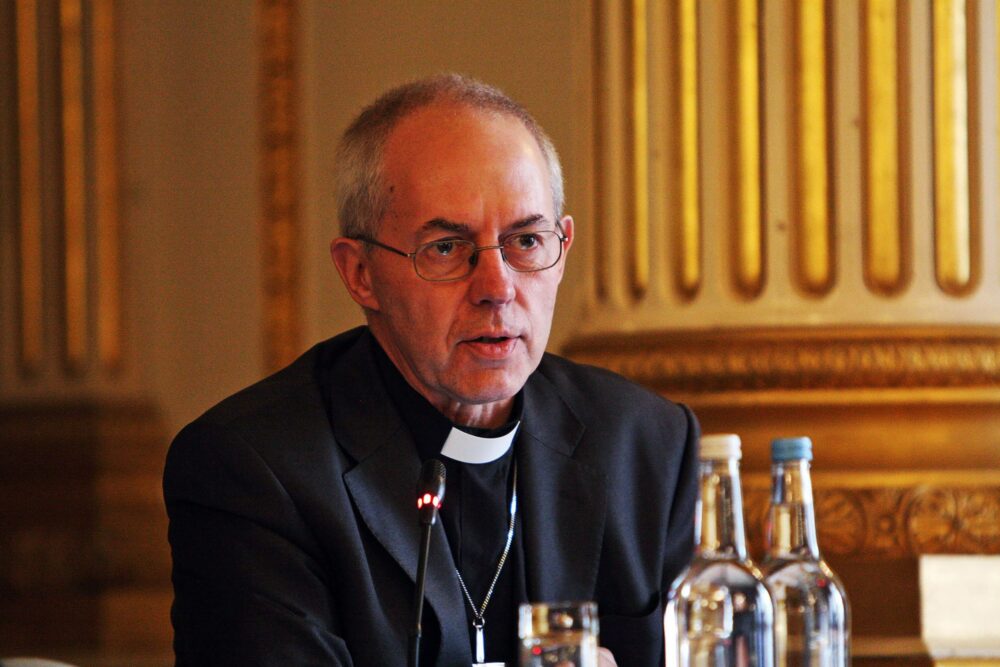By Mark Ellis —

Archbishop of Canterbury Justin Welby, the principal leader of the Church of England and symbolic head of the worldwide Anglican Communion, confided that he takes an antidepressant every day and insisted it is no big deal.
The archbishop admits to have grappled with what he calls “the black dog” – a phrase Winston Churchill used to describe episodes of depression.
Speaking at a mental health conference October 21st, he said: “I carry an inhaler everywhere; I take an antidepressant every morning. Big deal. . . They are two sides of the same coin.”
The event, “Faith and Mental Health: A Christian Response,” featured workshops for about 100 participants, one of which included Prince Harry, according to Church Times.
Prior to the conference, Archbishop Welby had said: “Last year, I realized I was depressed. I have a daughter who has been very open about her experiences of depression, and she helped me see that it wasn’t something to be ashamed of. It’s just life — and I got help.”
Welby and his wife, Caroline, have six children. In 1983, their seven-month-old daughter, Johanna, died in a car crash in France. His daughter Katharine, 25, has had mental health issues, while another daughter Ellie, 33, has learning disabilities.

Katharine has spoken publicly about her mental health problems, suicidal thoughts, and of not being able to talk to her parents about them, according to the BBC.
She has not responded well to people who offer to pray for her. “If your first response is, ‘Can I pray for your healing?’ then you’re not listening,” she told the BBC.
“Because actually – A, you don’t need to say to someone you’re praying for their healing for God to be able to work, God’s bigger than that. And B, it really shuts down the conversation. I now actually only let a very few people pray for my healing, because I’ve had so many really awful experiences.”
One time someone prayed for her “addiction to negative thinking.”
“I’m not addicted to negative thinking,” she protested. “I’m depressed and anxious medically. It’s a chemical thing going on with me, it’s not an addiction. And that was really unhelpful. I felt very unsettled by that.
Even the Archbishop is put off sometimes by offers of prayer. “I’ve had times when people have said, ‘Could we pray for you?’ And if I wasn’t the Archbishop I’d have actually said, ‘I’d really prefer that you didn’t’, but I feel that I can’t always say that,” he admitted.
He told the BBC he prays for Katharine and her mental health every day, but has not prayed as often for his other daughter. “I haven’t prayed for Ellie,” he told the BBC.
Ellie has dyspraxia, which impacts her coordination and is sometimes confused with clumsiness. Her disability often goes unnoticed by other people.
Turning to Ellie in the BBC interview, he said: “Your younger sister said, ‘If God changed Ellie she wouldn’t be Ellie, and we love Ellie’. So there’s that thing that Ellie’s Ellie, she’s precious.”
Ellie continues to trust God in the midst of her struggles. “I have felt a bit like, well if God heals why am I still dyspraxic? Why do I still find it really difficult to do things? But at the same time it doesn’t change the way I trust God.”

Archbishop Welby thinks the church needs to do a better job addressing mental health issues. “I’m thinking of people in my current diocese and my previous diocese — outstanding people, who found that they had mental ill-health, and the Church was flummoxed by it, and has a long history, with the rest of society, of not knowing how to deal with it.
“There have been moments where it’s been a huge test,” he says. “You read the Bible and life’s not simple,” he said.



